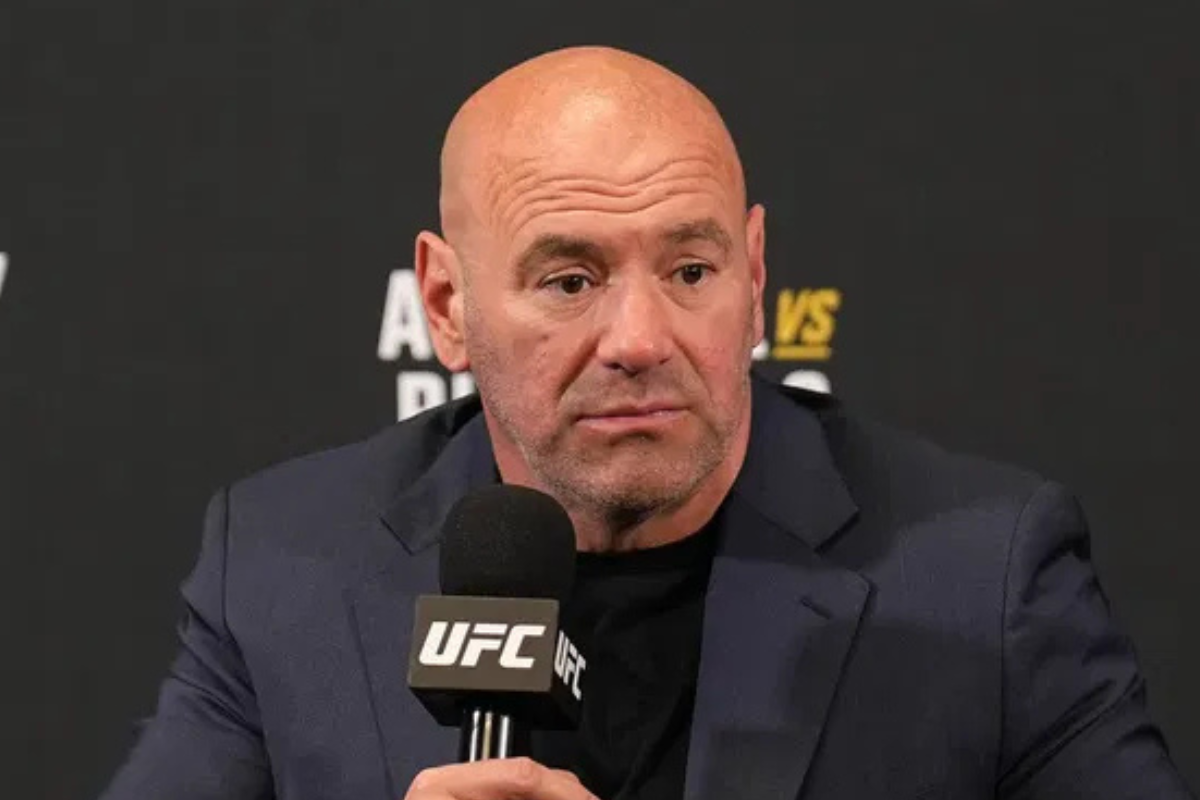
Imago
Credits: IMAGO

Imago
Credits: IMAGO

Imago
Credits: IMAGO

Imago
Credits: IMAGO
“This isn’t a career. This is an opportunity,” – Dana White famously said these words a few years ago, and now he’s doubled down on it. For the UFC CEO, fighters might be putting a little too much effort into fighting and not enough into building a personal brand. On the TRIGGERnometry podcast, White used Conor McGregor’s example of how he transformed himself into a major brand and made serious money outside the UFC Octagon. While doing so, he also presented his doubts, “I’m trying to think of who else has been able to do that. Everybody else had to make all their money in fighting.”
Watch What’s Trending Now!
Essentially, the head honcho urged fighters not to see fighting only as a way to earn money and instead use his platform to become famous, just like ‘The Notorious’ did. Although there might be some truth to White’s take, it has drawn criticism, the latest coming from former lightweight title challenger Kenny Florian, who fought B.J. Penn at UFC 101.
Kenny Florian pushes back on Dana White’s controversial comments
Reacting to the UFC boss’s controversial take, Florian posted on X, “Interesting take. Except, the UFC brand is built on the backs of the athletes who treat this like a career every single day. From the athlete’s side, it looks a lot like a career:• Full-time training • Full-time risk • Full-time sacrifice • Full-time accountability. No PTO, no off-season, no safety net.”
Unlike major leagues like the NFL or NBA, UFC fighters don’t enjoy benefits such as paid off-season time, and they only receive limited insurance coverage for their health. It’s because the promotion works on a fight-and-get-paid model. With a base salary of $10,000, fighters stay ready throughout the year, treating it as a career while trying to become famous.
Florian further wrote, “You don’t sacrifice holidays, health, relationships, sleep, and years of your life for a ‘maybe you get famous.’ You do it because you’re obsessed with excellence and you’re willing to pay the price most people won’t. Fame doesn’t create fighters. Fighters create fame. And without fighters treating this like a career, there is no UFC.”
Interesting take. Except, the UFC brand is built on the backs of the athletes who treat this like a career every single day. From the athlete’s side, it looks a lot like a career:
• Full-time training
• Full-time risk
• Full-time sacrifice
• Full-time accountability
No PTO,… https://t.co/6Gi4BFCxNc— Kenny Florian (@kennyflorian) November 21, 2025
Florian definitely makes another strong point. Even Conor McGregor had to grind his way to the top and capture a title before he ever started pulling in millions as his base pay. In reality, most fighters must treat this as a full-time career and usually reach championship level before they see any life-changing money. Many others have to balance their training alongside other gigs. McGregor was a plumber before he quit his job and decided to pick up martial arts as a full-time commitment. He had the safety net of his girlfriend’s income and welfare checks to fall back on.
UFC 322’s surprise standout, Ethan Ewing, made headlines twice in the span of seven days. First, for his win over Malcolm Wellmaker. Second, for his return to his blue-collar job at a construction site. What’s worse, Ewing did not win a bonus for his MSG outing even though the bout had all the makings of the Fight of the Night. How does White expect him to build a brand while he has to balance training alongside building, well, buildings?
As the debate continues to heat up, another former UFC fighter has now stepped in to aim at the UFC CEO over his comments.
Ex-TUF fighter strongly reacts to UFC CEO’s take
After using Conor McGregor’s example to prove his point, White took an even more direct tone. Adding to his thoughts on the TRIGGERnometry podcast, White directly implied, “I tell all these guys this isn’t a job, this isn’t a career, this is an opportunity for you to become as famous as you can possibly be. Many people around the world see the great things that you’ve accomplished and make as much money as you can possibly make.”
That statement was something former UFC fighter Tom Lawlor didn’t appreciate. The ex-Ultimate Fighter participant responded to the video on X and fired back with, “Double standard a** bulls**t.” As we can see, the backlash toward the UFC head honcho’s comments has only grown; his interview keeps making rounds online.
Many fans and pundits are showing support for the fighters who compete multiple times each year, yet still receive only a 16–18% share of the company’s total revenue. Still, it’s also true that fighters who build their presence outside the UFC often benefit in the long run through sponsorships and other opportunities as well.
That said, should fighters follow the path of Conor McGregor or champions like Alex Pereira and build income outside the Octagon? Or do you believe they should earn significantly more for what they do inside the cage? Let us know in the comments section below.

